


to Bhakta K.





to Bhakta K.

A village, a grandfather, a mother, a father, brothers, a sister, a house made of wood and straw, a miniature of the sun in the door, a path, mountains, a waterfall, a stream, some monkeys, a fire, a wooden ladder, an earthen floor, some corn on the cob, some salt, some harvested rice, a glint on the surface of a small river, pitch blackness at night, wood crackling on the fire, red pigment, rhododendrons, some yaks, rice paddies, the sun at noon, the arrival of the monsoons, fear, the end of the monsoons, my mother’s sari...

Non c’è un padre e neppure una madre in questa casa di legno. A volte il giorno ti lascia scalzo e cammini nella terra nuda sei il bambino che gioca a biglie e gridi alle nuvole! Vedi in trasparenza il sole. Cerchi di racchiudere la sua luce nel palmo delle tue mani ma c’è solo aria che danza tra la pelle e il cielo.
Dopo un istante la biglia è nella buca e di nuovo urli alle nuvole come se non lo avessi mai fatto!
Corri nella terra dove ardono i sassi e la benevolenza è nell’acqua che sorseggi dal ruscello. Senza maglietta con il pancino rigonfio cerchi il primo insetto da divorare.


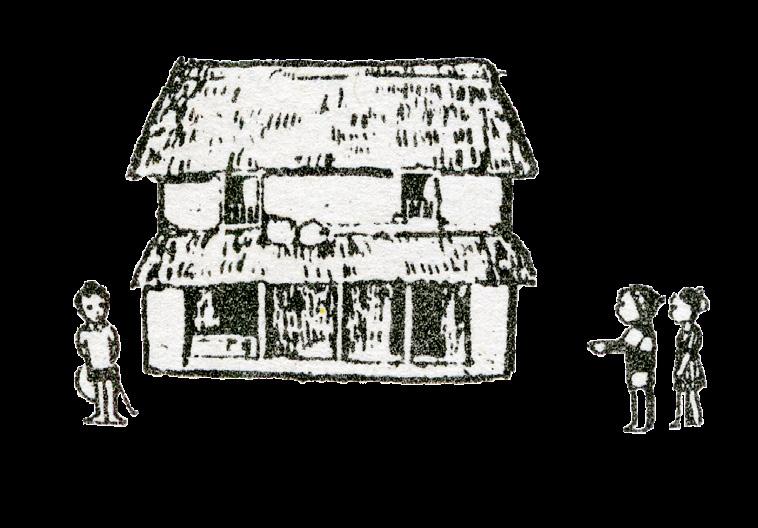
25 Maggio 1998 (scritta a 18 anni)
Vi amo come fossi nato da voi!
Dal primo giorno in cui miei occhi da bambino hanno visto i vostri visi. Era in quella casa bianca chiamata Bal Mandir Naxal*, dove i palloncini svolazzavano a contatto di mani.
Si può nascere due volte, ma ci si può salutare una volta sola: nella prima ero Adhikari nella seconda Fabbri nella terza sarei chi? Avevo nascosto i ricordi del villaggio sotto una coperta verde ed io invece ero rimasto in una stanza: *Jhandā Jhandā al Bal Mandir Naxal! Jhandā Jhandā! Ripetevo. Era la bandiera che sventolava nel cortile, proprio così, in compagnia di un bambino che cantava un inno. Jhandā Jhandā! Sfibrava lo strumento della propria voce così regale sinfonia lasciato come un memento in quella casa bianca. Era lui la statua che custodiva un angolo invisibile della stanza. Dicevano che l’amore di una madre e di un padre fosse sospeso nell’aria, doveva essere solo afferrato, ma il tempo con le origini erano nella mani di un fanciullo.
Adesso conosco bene i vostri visi nel riconoscere il propio figlio anche se non è nato da voi: perchè io vi amo come fossi nato da voi!
Ma ci sono ritratti volanti e occhi volatili che si posano sotto un sari rosso, perchè al rovescio il tempo non discende verso la culla.
Ma in questi anni dalla mia seconda infanzia italiana fino alla maggiore età ho assunto espressioni facciali molto simili alle vostre: perchè io vi amo come fossi nato da voi!



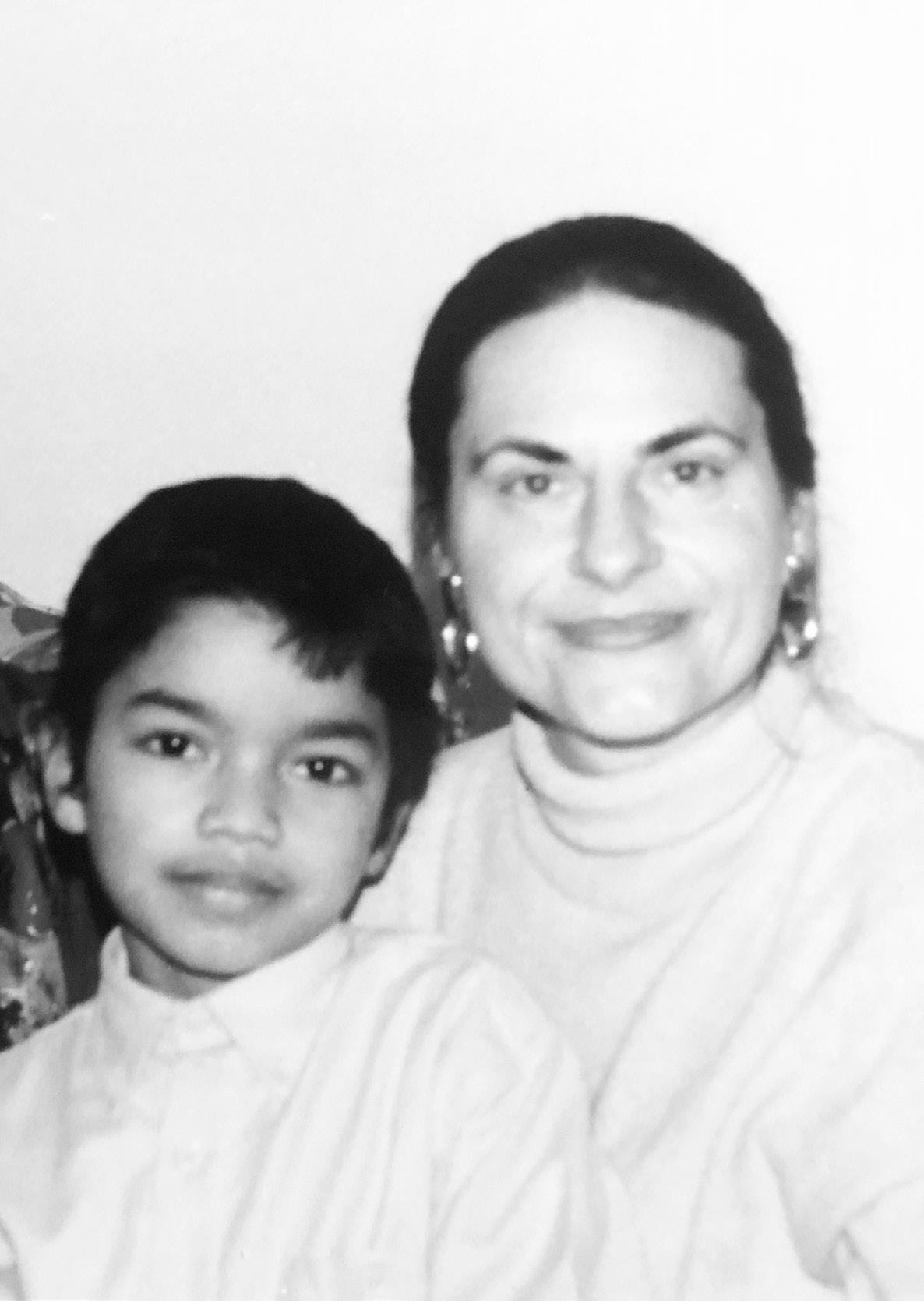
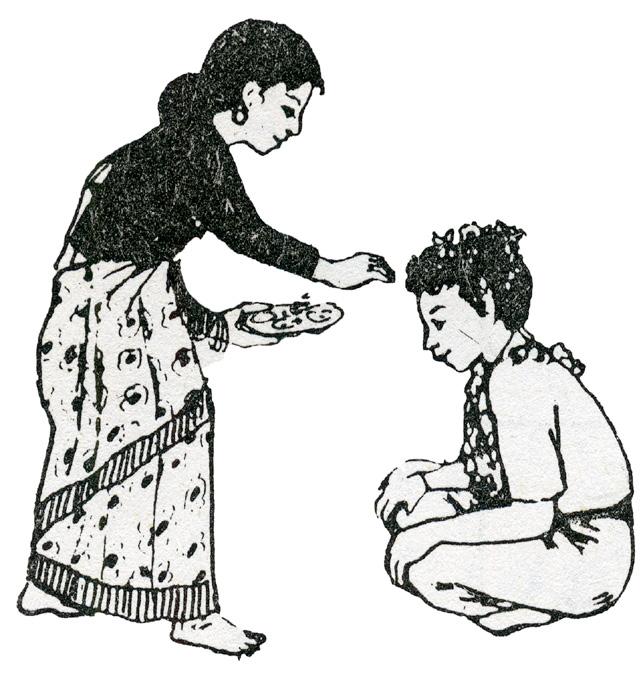
Āmā,
hai incontrato l’altra mia madre come è andata? Cosa vi siete dette?
I vostri sguardi si sono incrociati diventando un unico specchio nella mia stanza.
Madre,
l’altra mia madre ha il tuo stesso cuore ma il sangue fluisce in terre diverse. Gli occhi miei: una pupilla guarda al passato l’altra al presente. Ma assieme vedo un’unica immagine: vuoi siete entrambe mia madre.
Madre,
sono il figlio di quest’epoca nel suo e nei vostri grembi. Quale parte del mio corpo appartiene al paese che ha il privilegio prima degli altri di baciare il cielo?
Āmā, il tuo amore è un sari azzurro che fruscìa nella mia mente, ma ormai sei cenere dispersa in questo corpo di due terre.
*Āmā: in nepalese madre

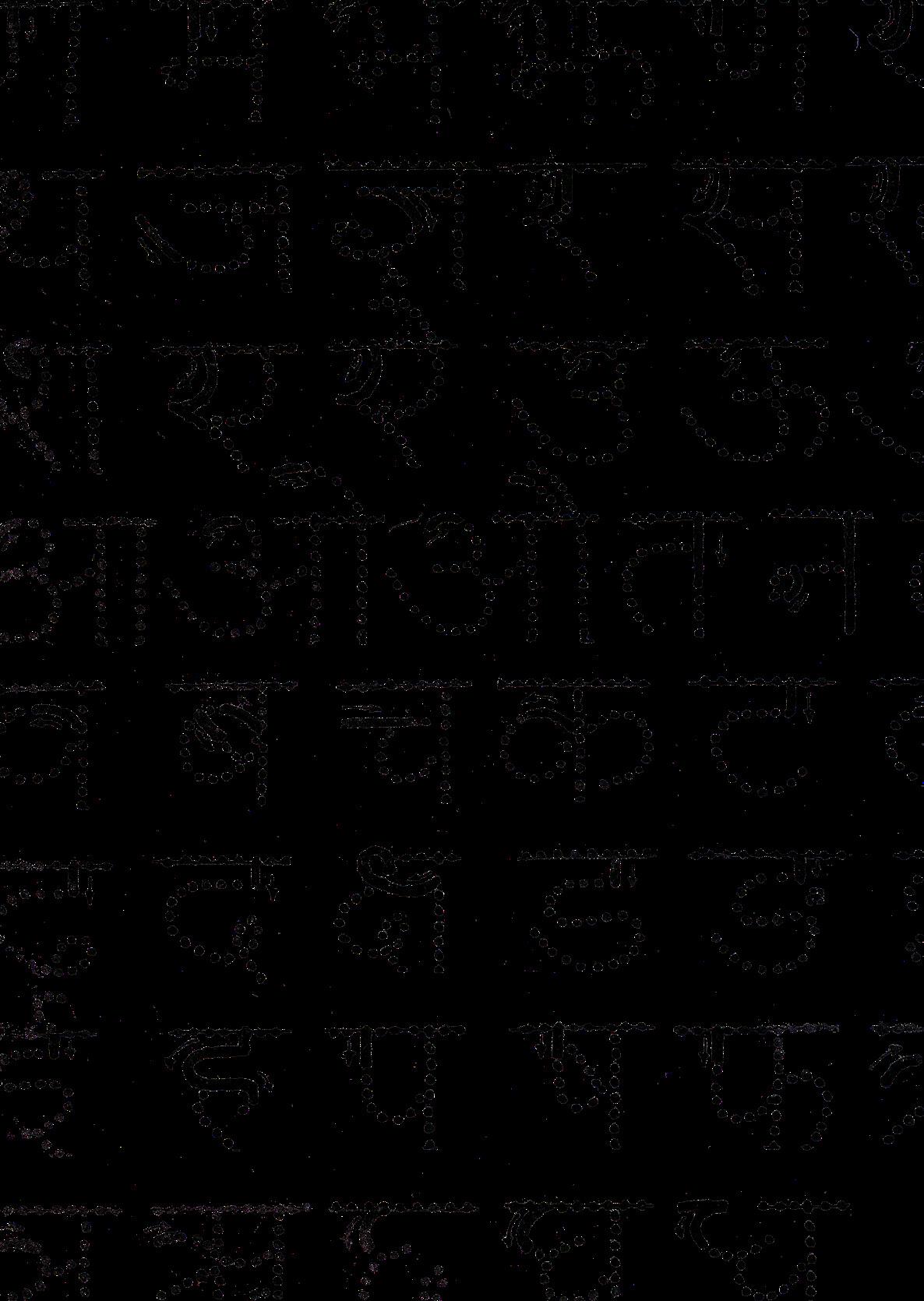
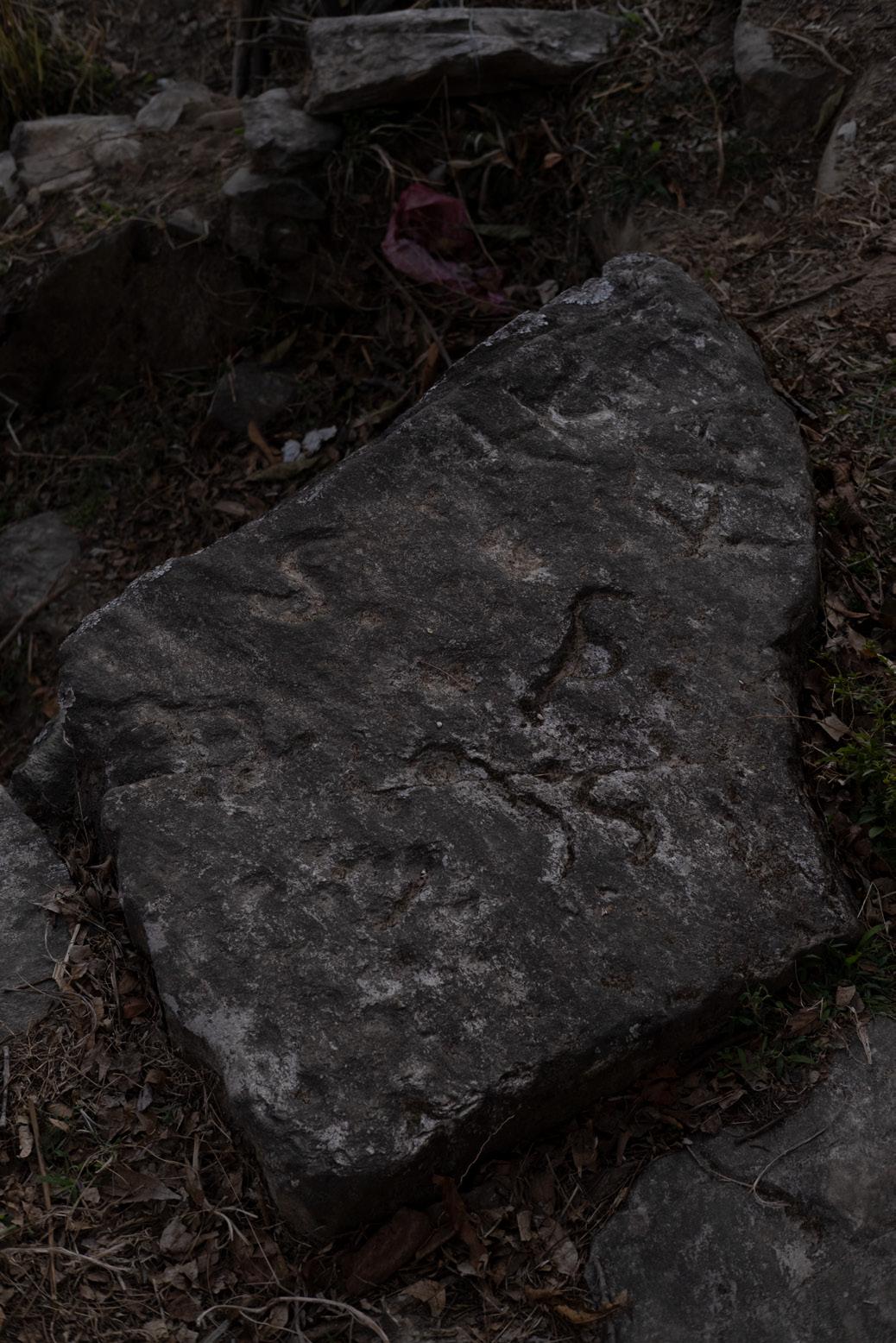




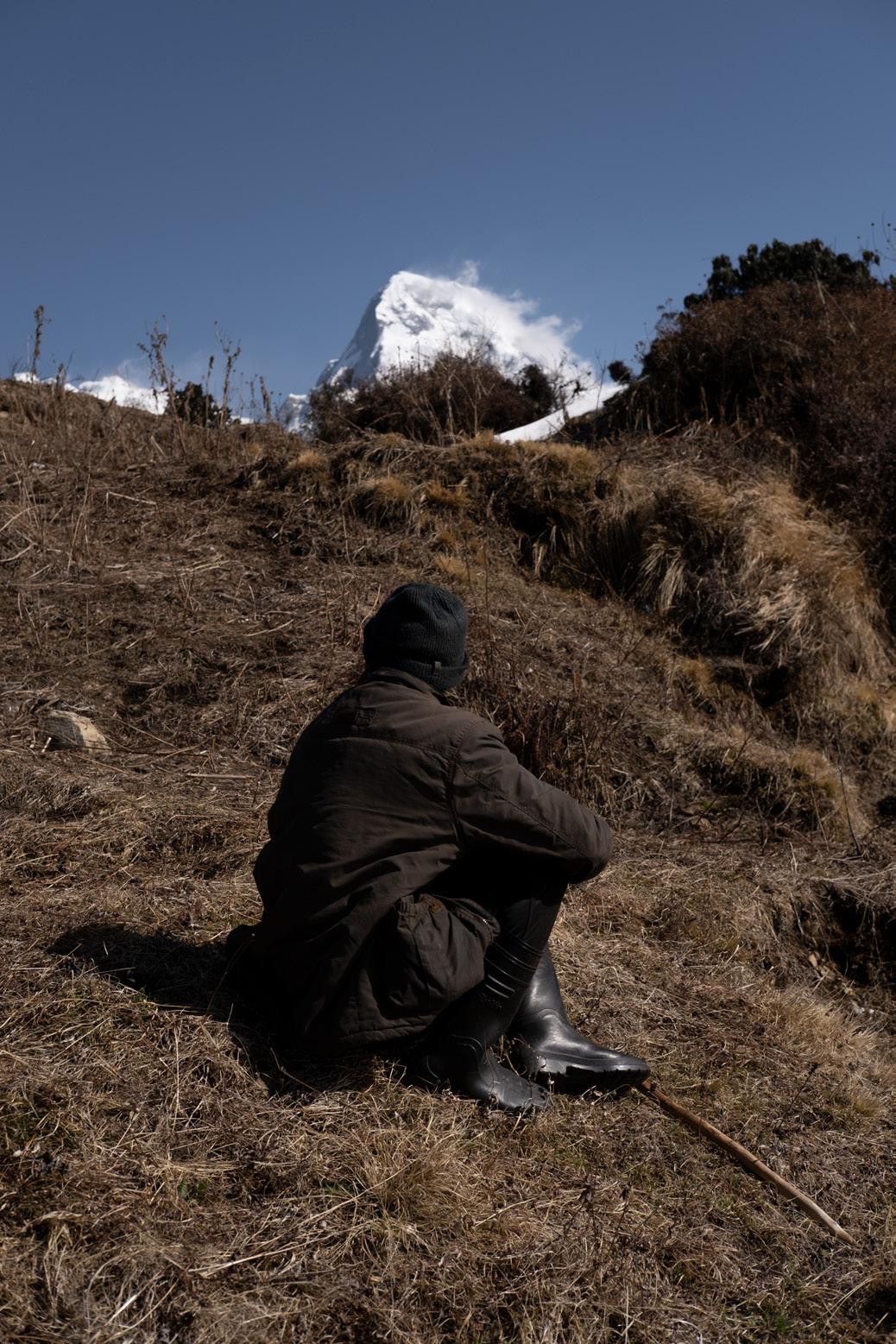
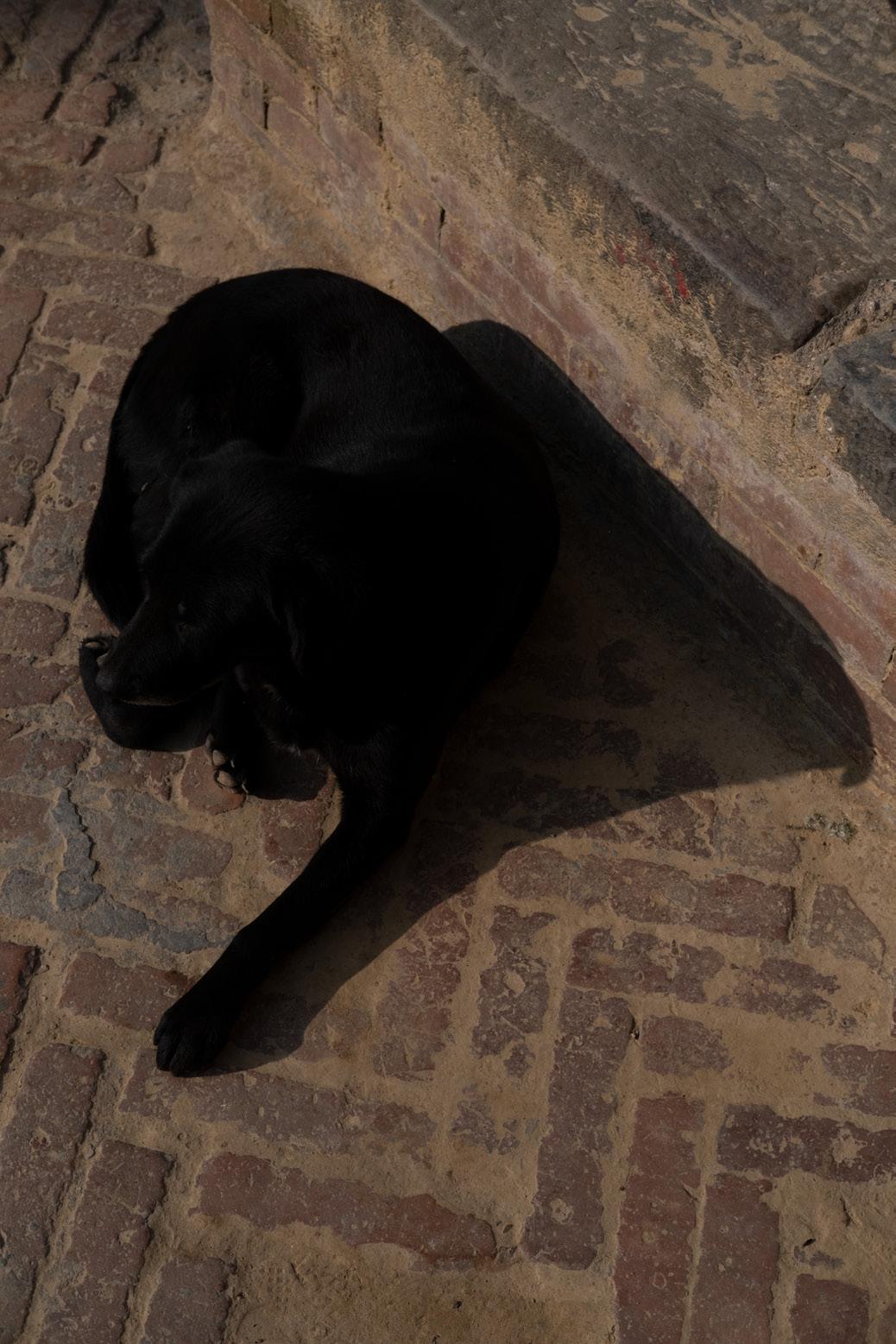




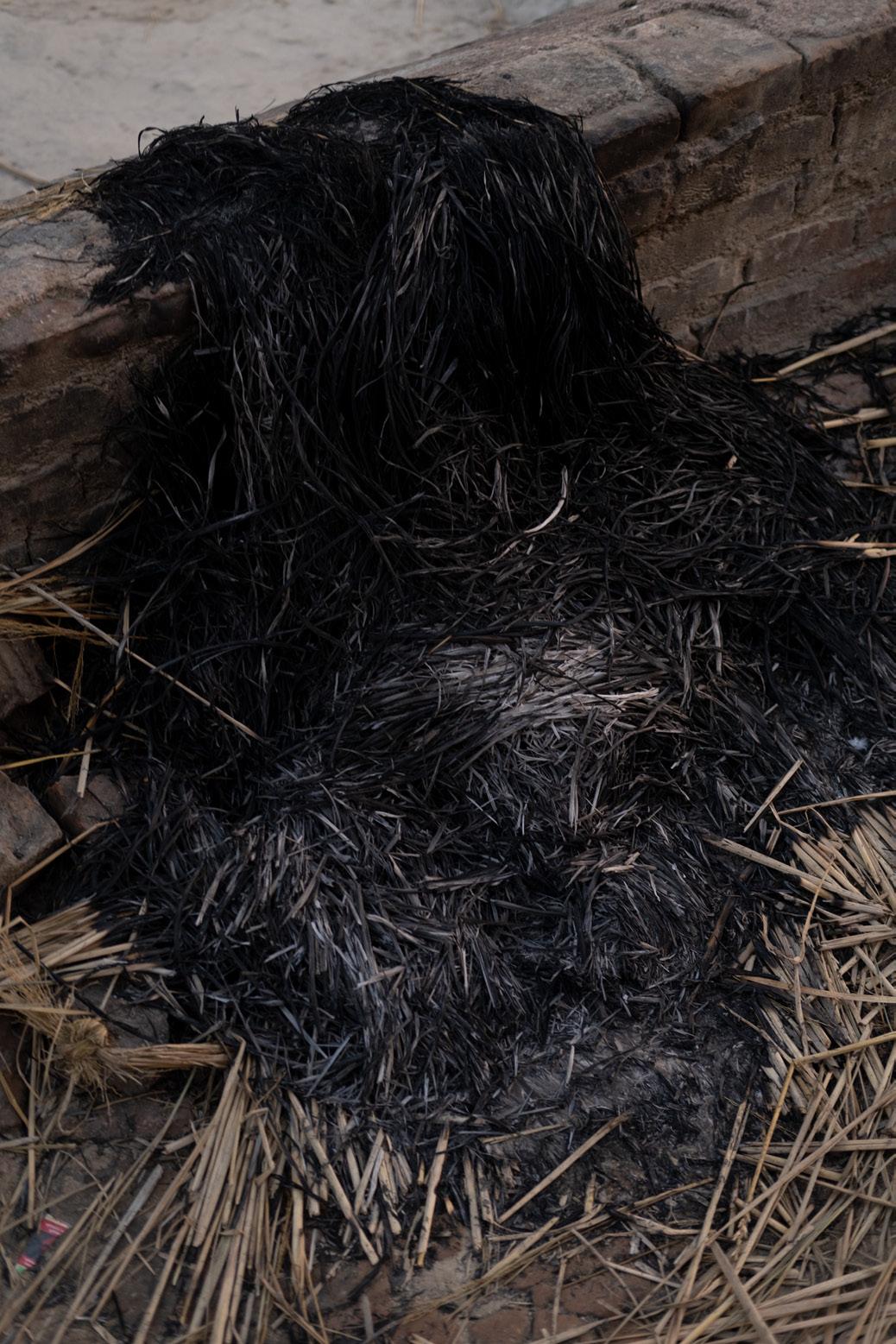






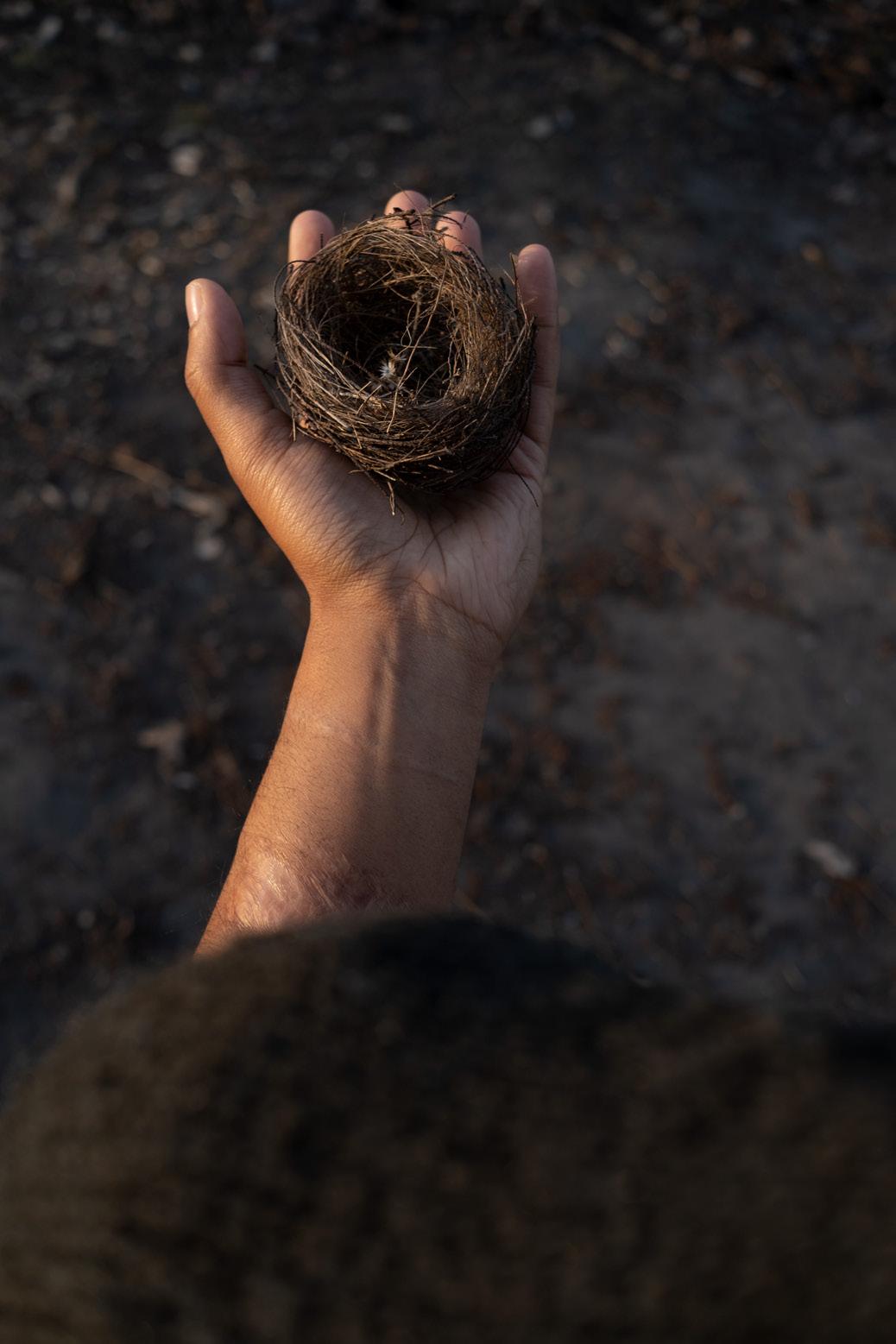
...my father’s glasses and hat, flocks of white birds fluttering, Buddhist monks visiting the house, my grandfather’s all-white robe, a wedding, flowers adorning a neck, many shades of red clothes, other clothes glittering, a field on fire, a funeral, another funeral, cremation, smoke and ash, the goddess Kālī, a giant sun in the surface of water, my sister, mango trees, a banana grove, hunger, digging with my hands in the ground to look for roots to eat, the last day in the village, my mother is gone. Where is my father? Where are my brothers? My grandfather taking me by the hand, a long walk, some crevasses, a pebbly ground, a variety of greenery, down a narrow and steep path, a waterfall, the path finally rejoins the main road, the wait, a few cars pass by, honking their horns, making a racket, a bus to Kathmandu,...

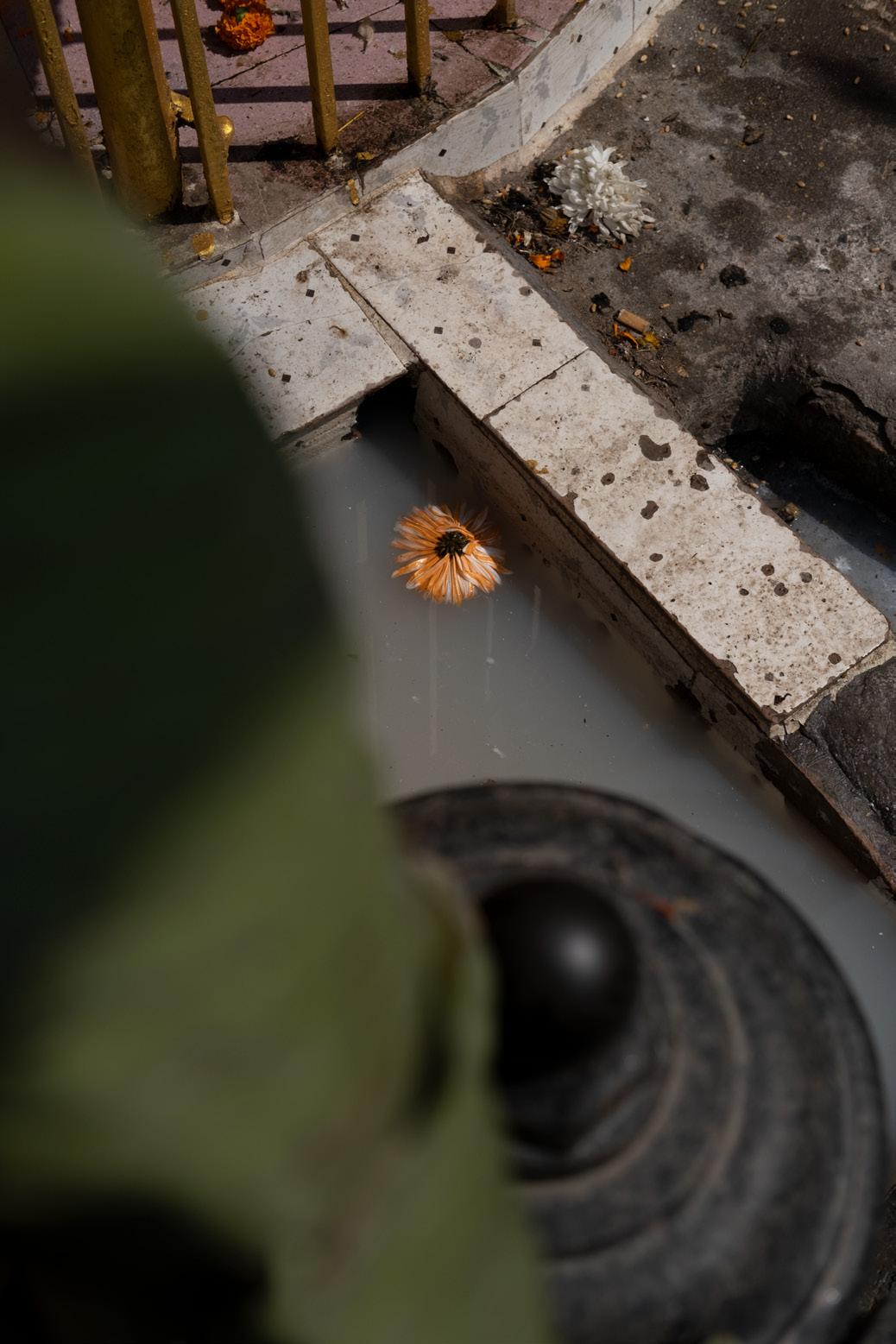


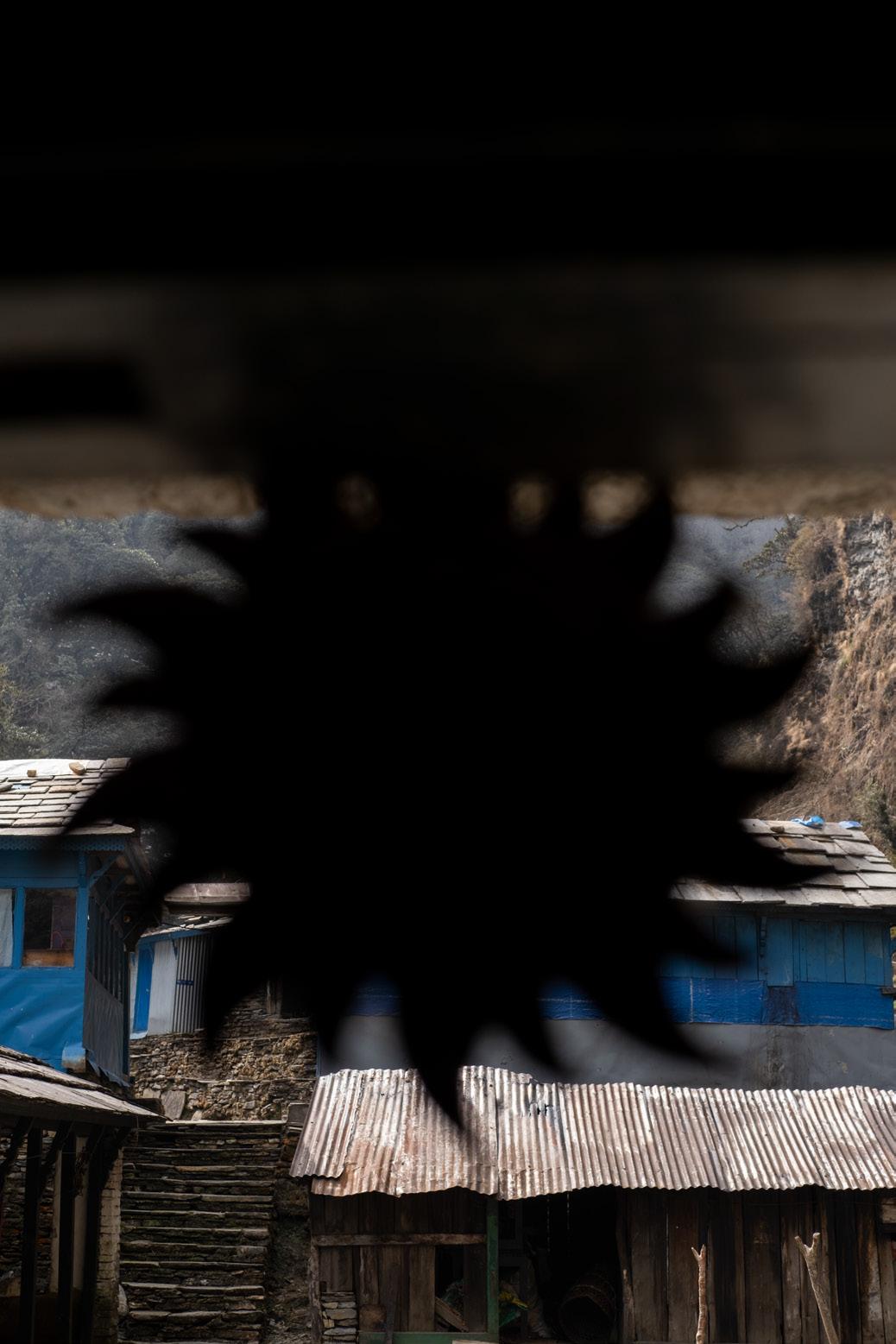



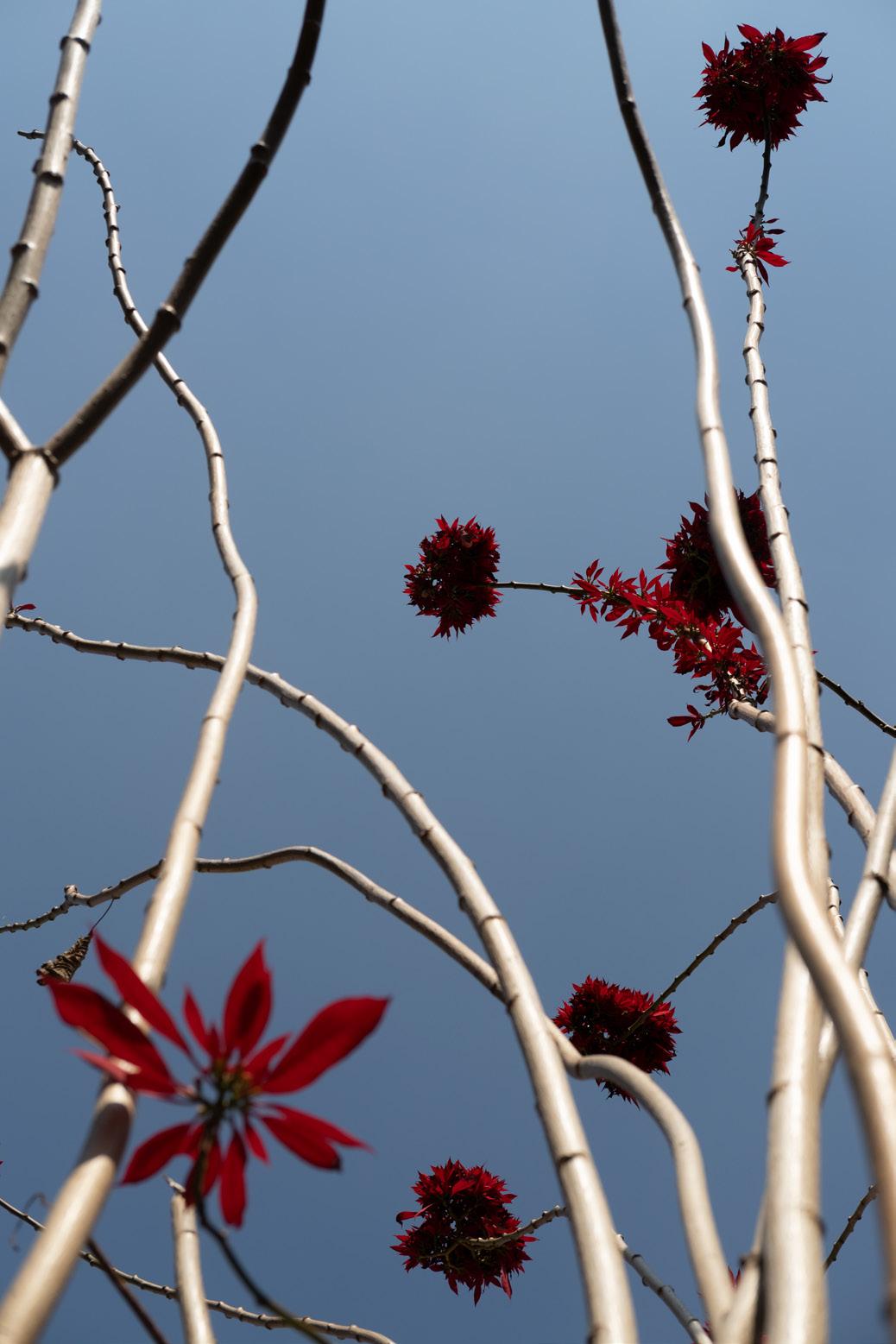

...the first time I get on a transport, a sea of people, the dizziness, the nausea, the hunger, I threw up everything I hadn’t eaten, the cries of an empty stomach when you try to throw up, a hot day, the sun beats down, the bus runs along a river for many kilometres, again the glitter on the surface of the water, we pass over a white bridge, a very long journey, the world outside the bus seems to move faster than the bus, I think I’m standing still but we’re moving, the journey continues, my grandfather, his white robe again, I’m not well, I throw up again, a multitude of stops, we pass through large villages, people getting on and off the bus, some women and men with red pigment on their foreheads, dust...
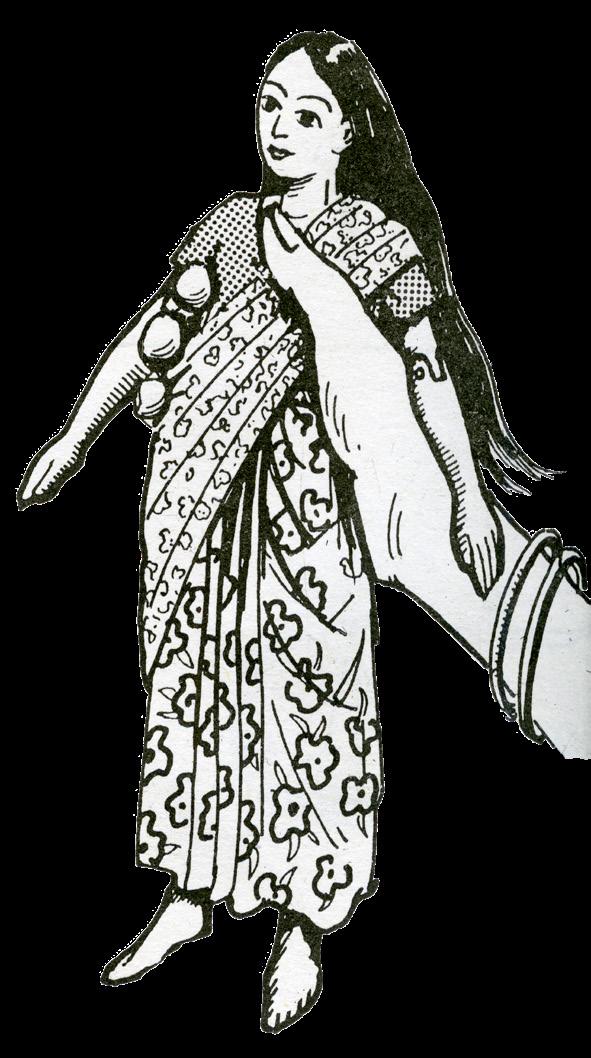
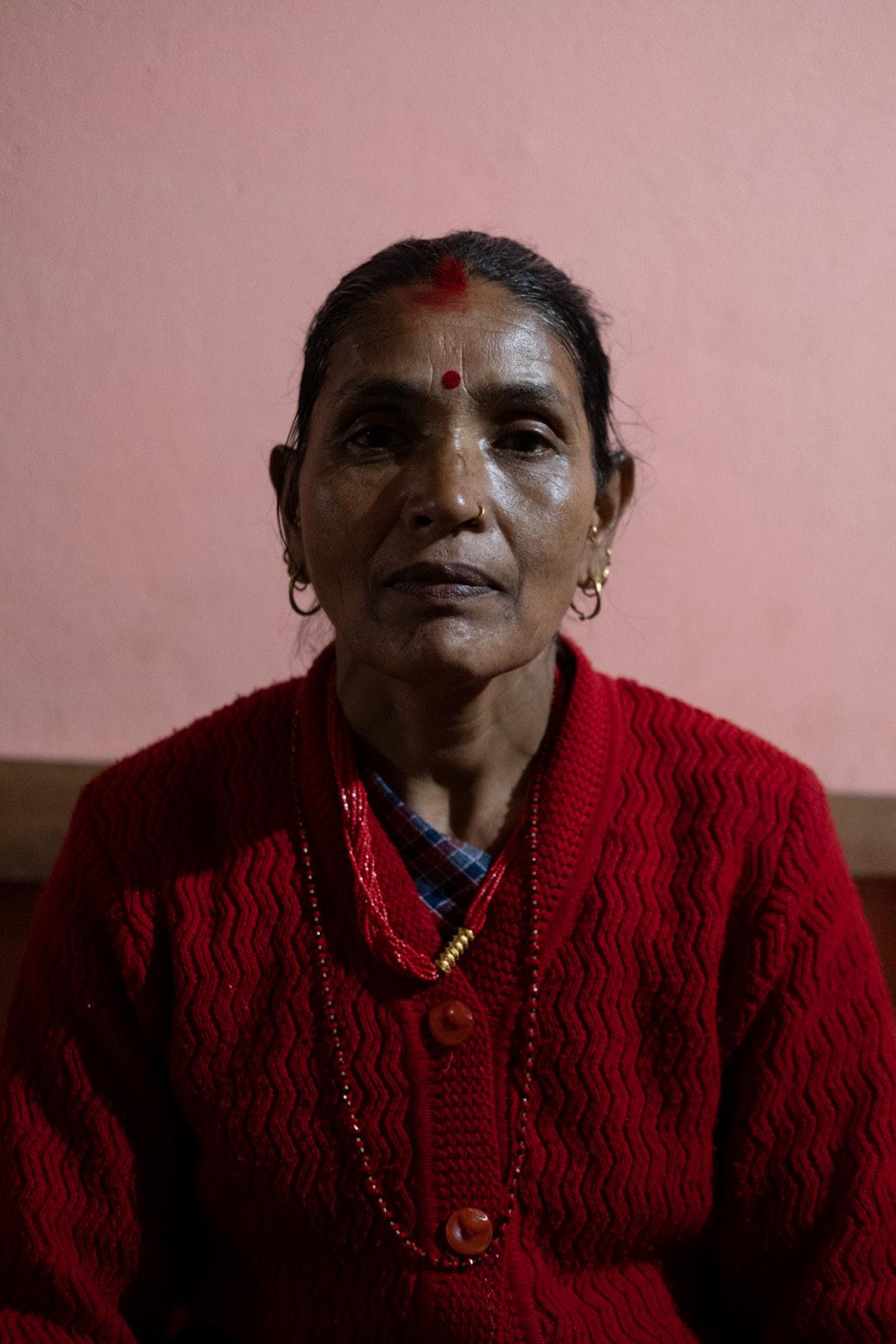


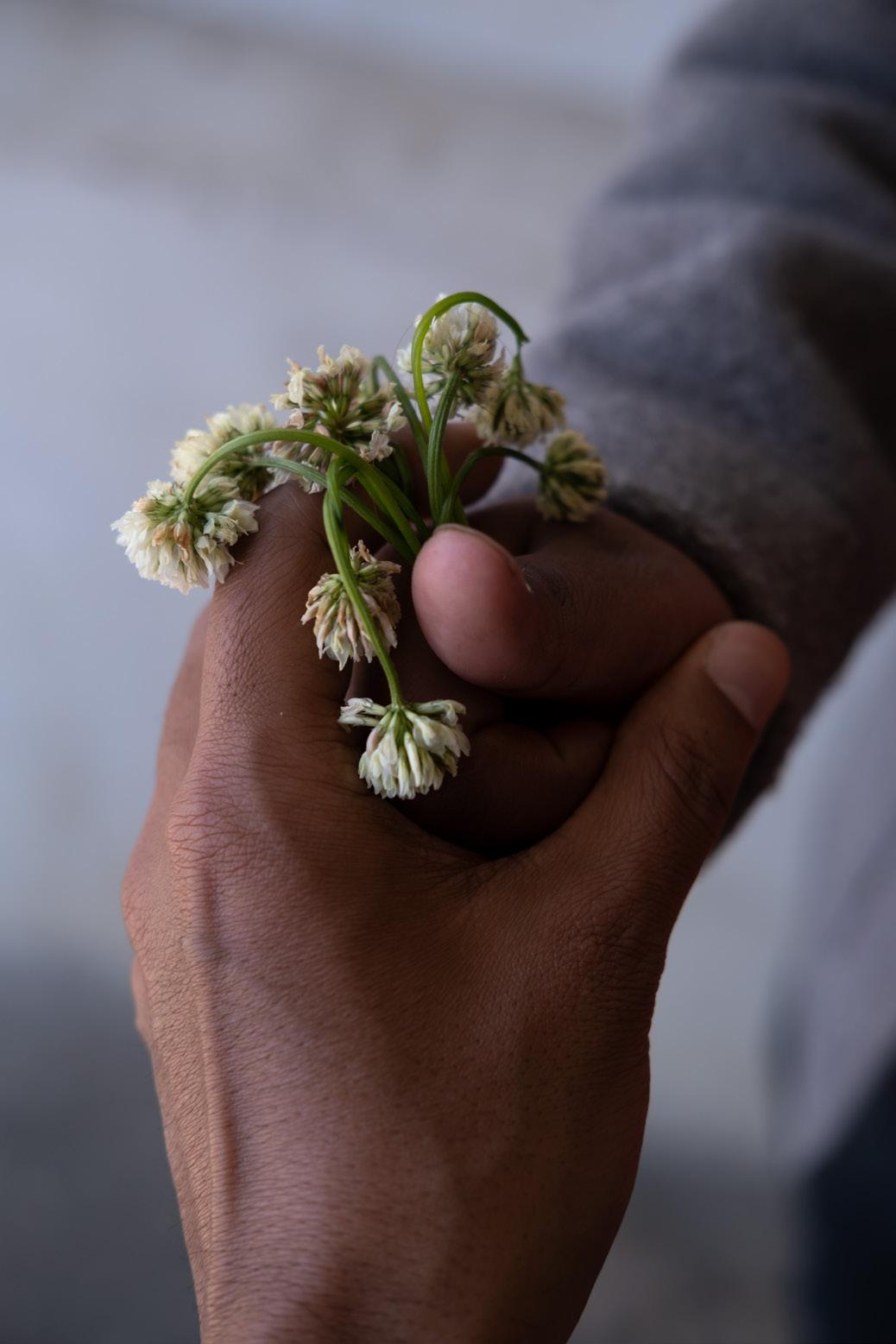


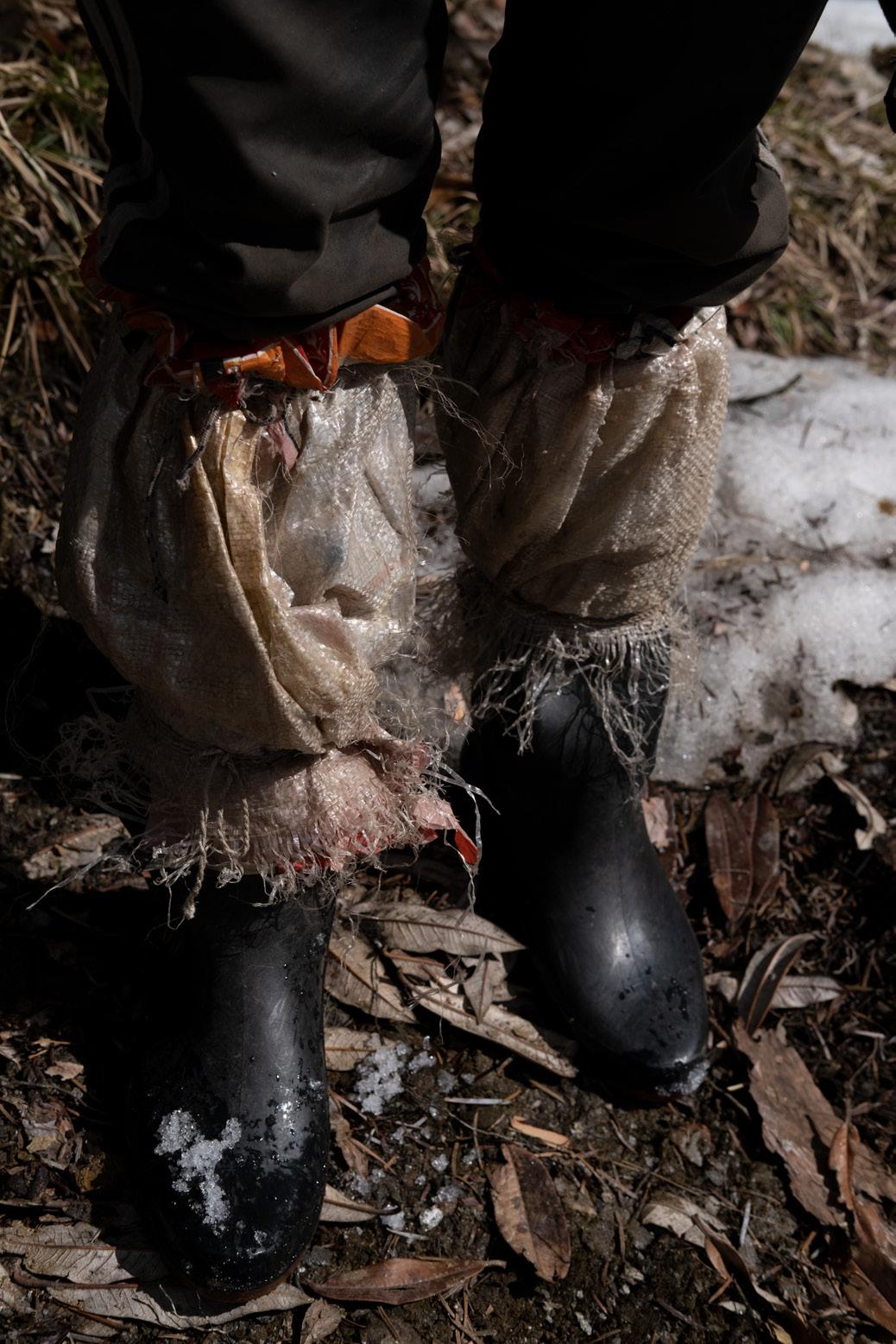

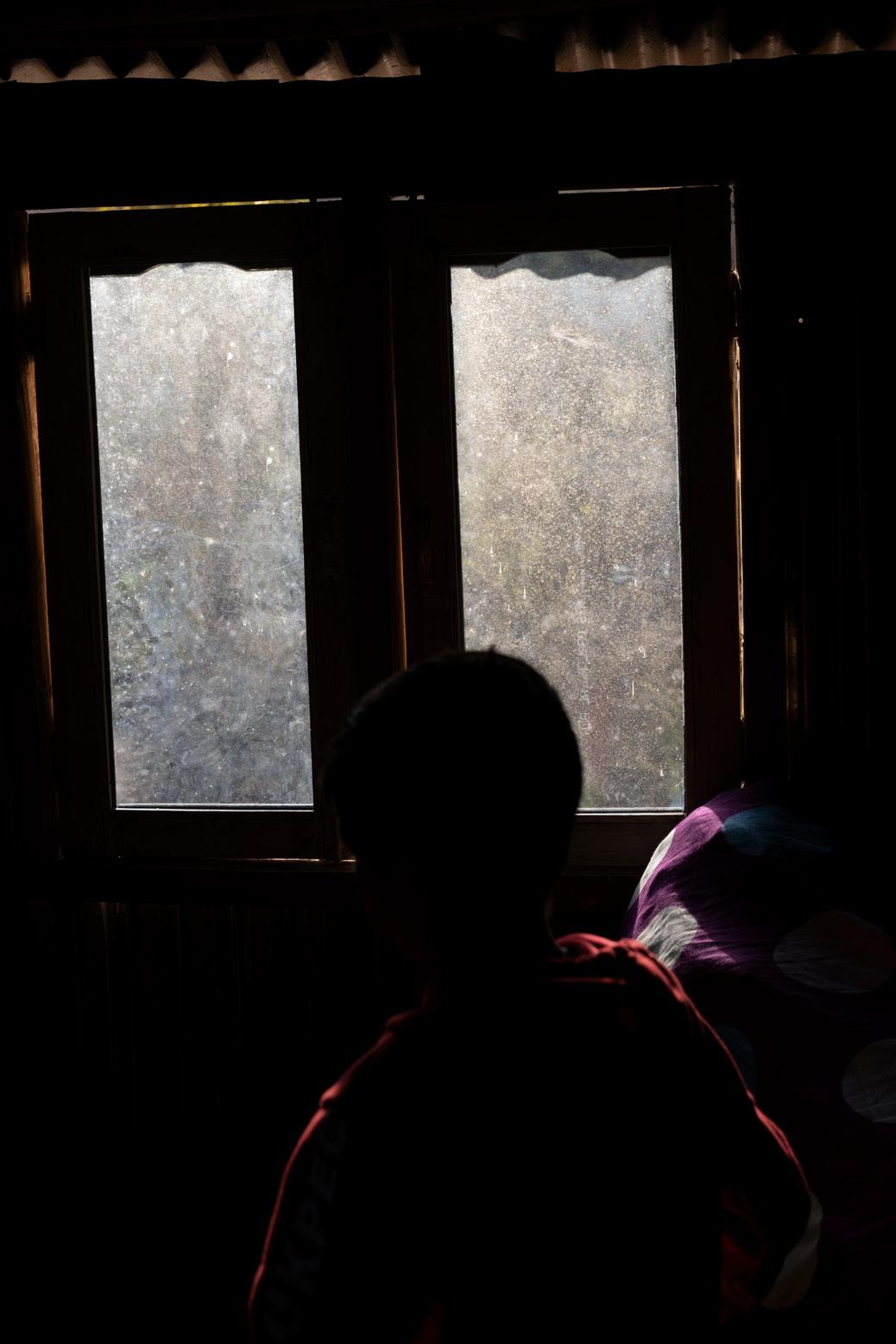



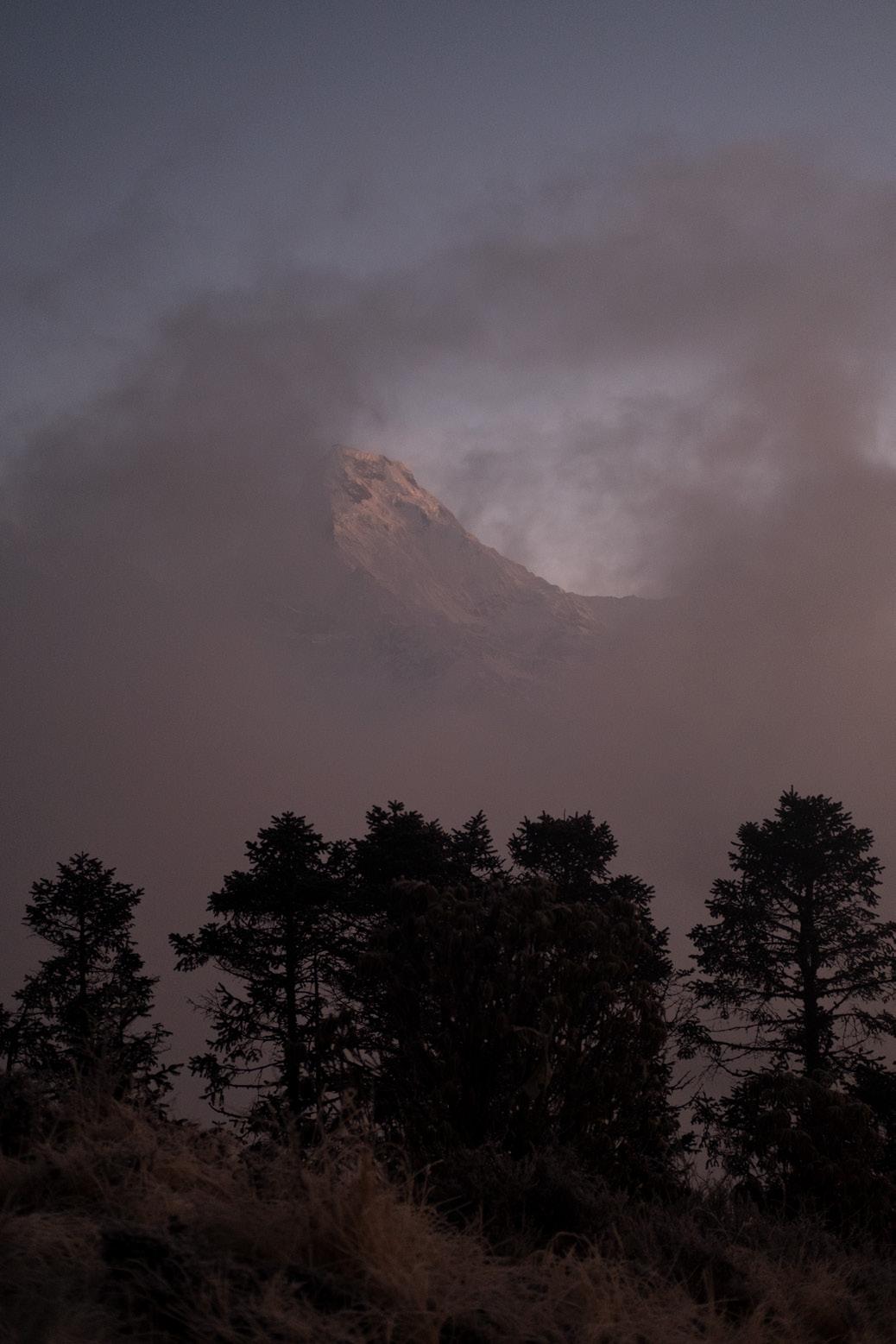

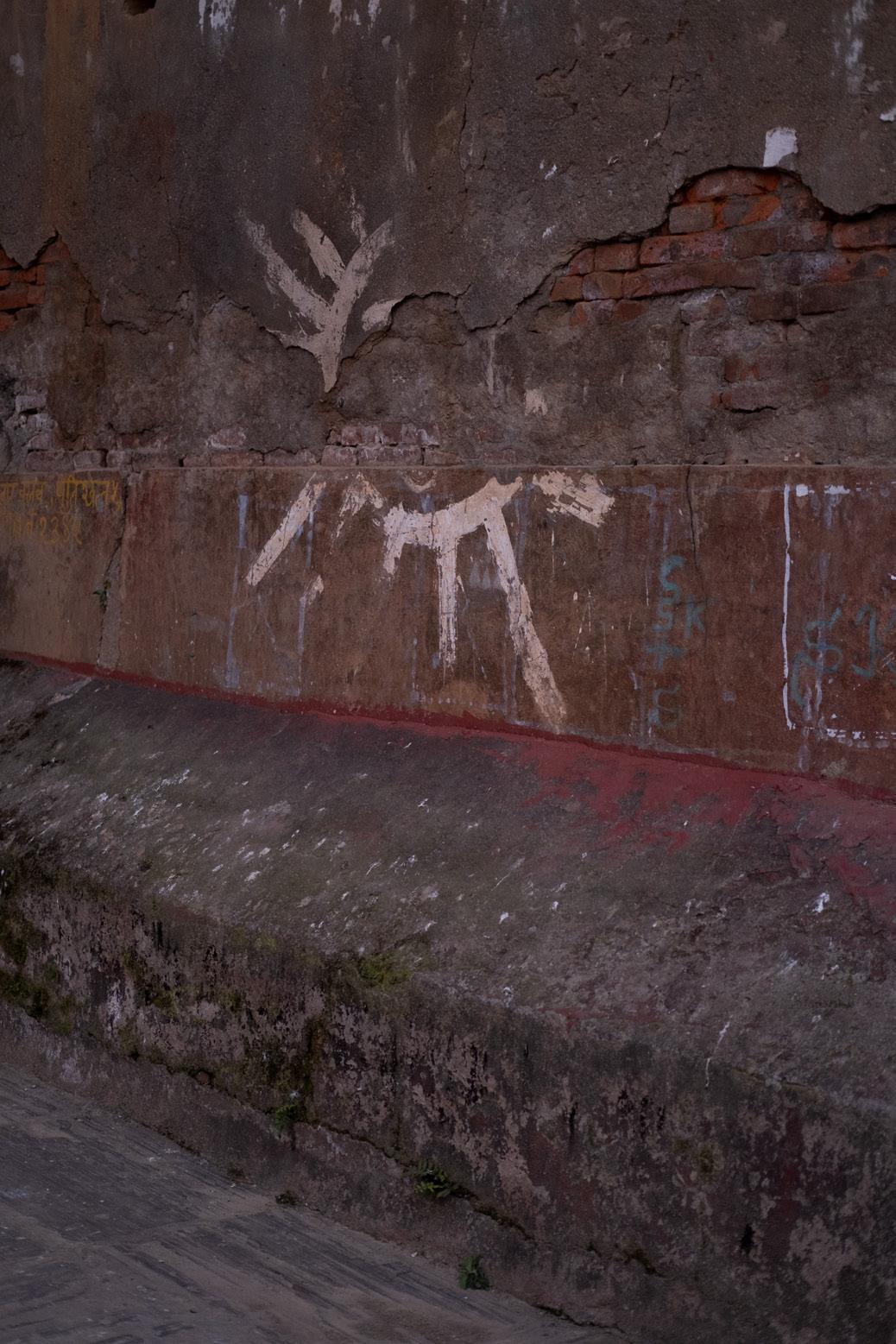




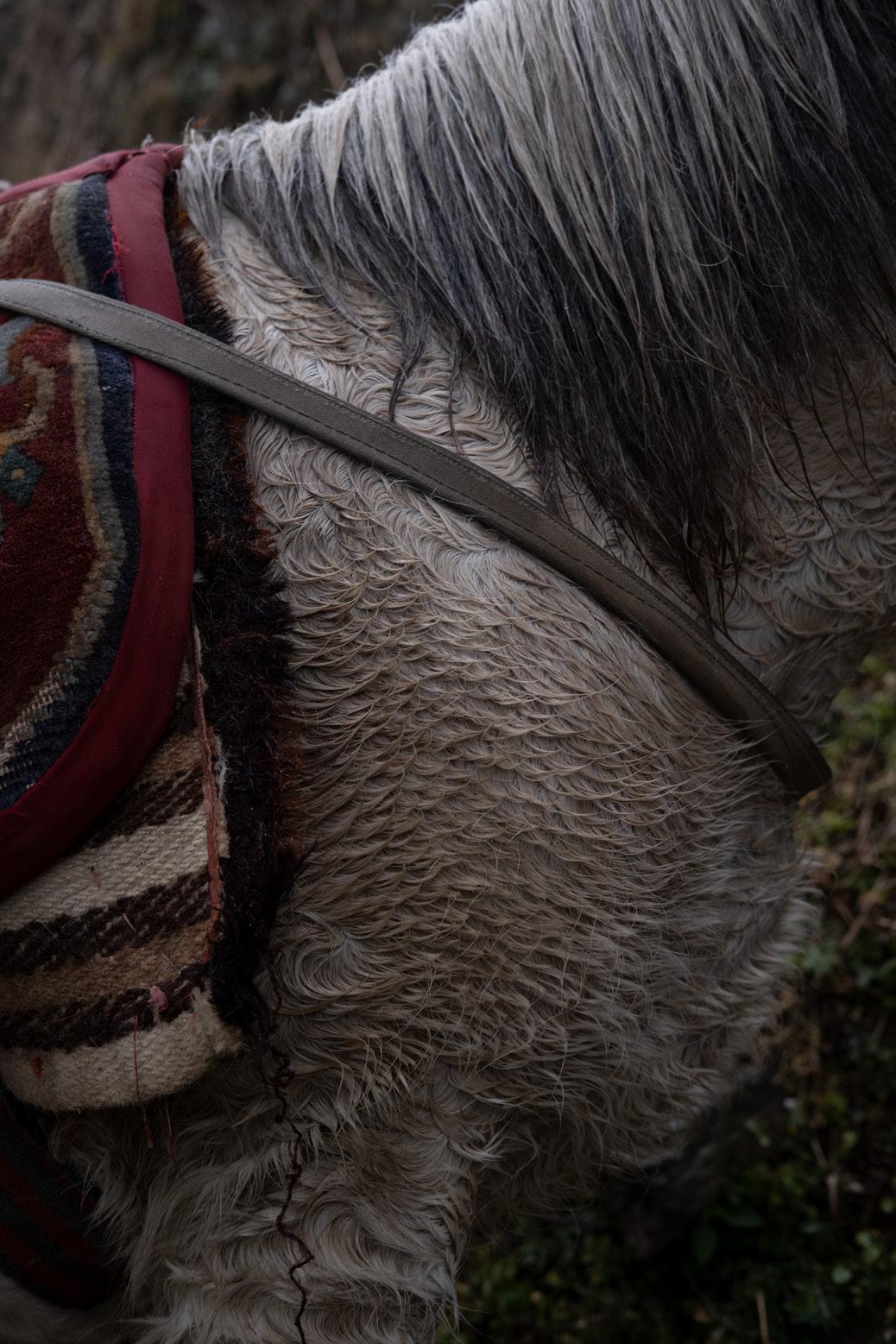


...there is more and more dust, Tata trucks passing quickly and shining, monkeys in the distance, more monkeys crossing the road, the presence of many cars, jeeps, some strange trucks, some tuc tucs, a valley, other valleys, we are down in the valley, roads with many potholes in the ground, it’s a continuous rocking, more and more hubbub of vehicles and people, a continuous honking of horns, we arrived in Kathmandu, we got off the bus, a strong smell of tangerine mixed with diesel, the last vomit, a strong headache, the air is completely different, very heavy, the smell of tar, a big black container, the first time I see a city, I have never seen so many people, disorientation, my grandfather, his robe all white...








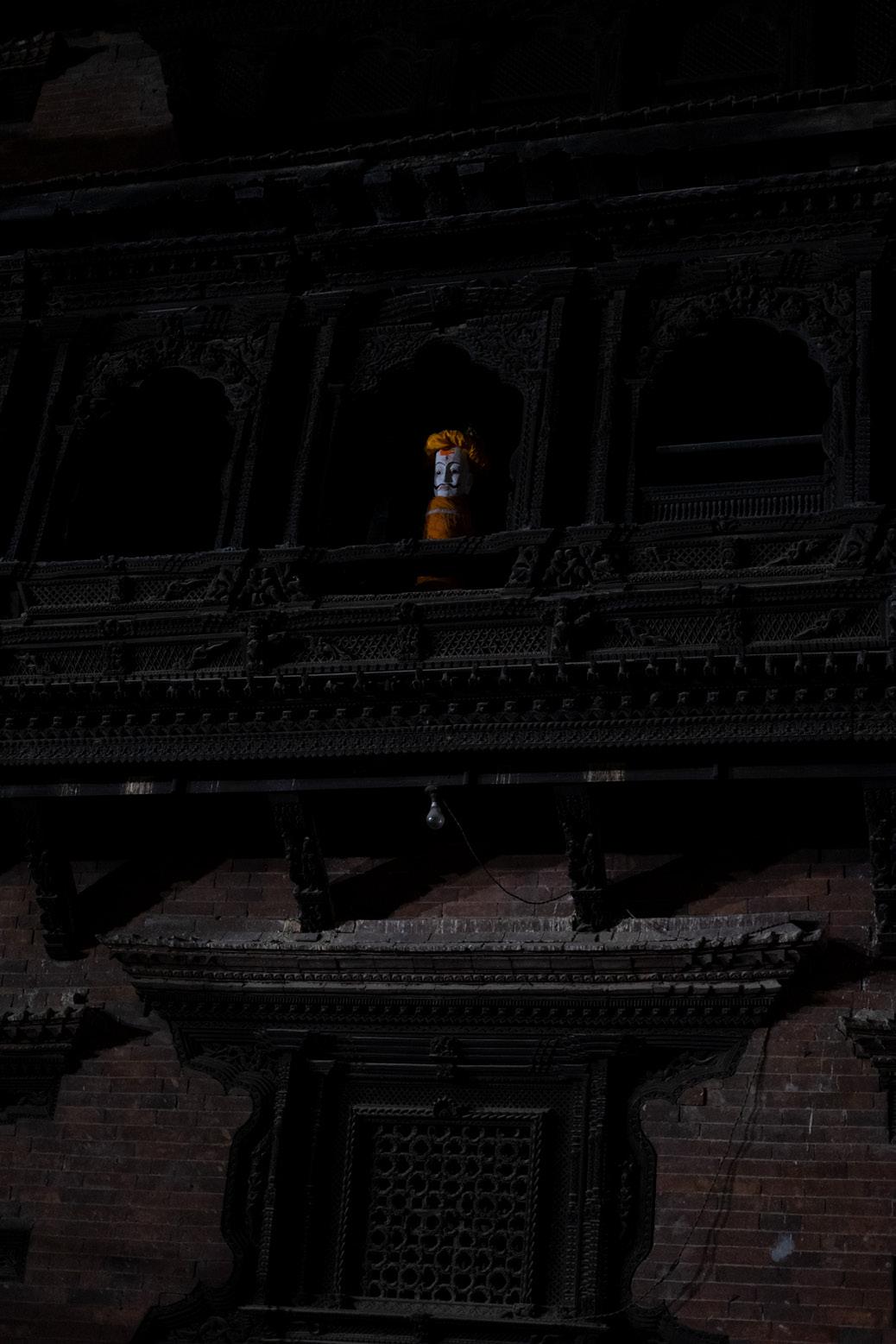
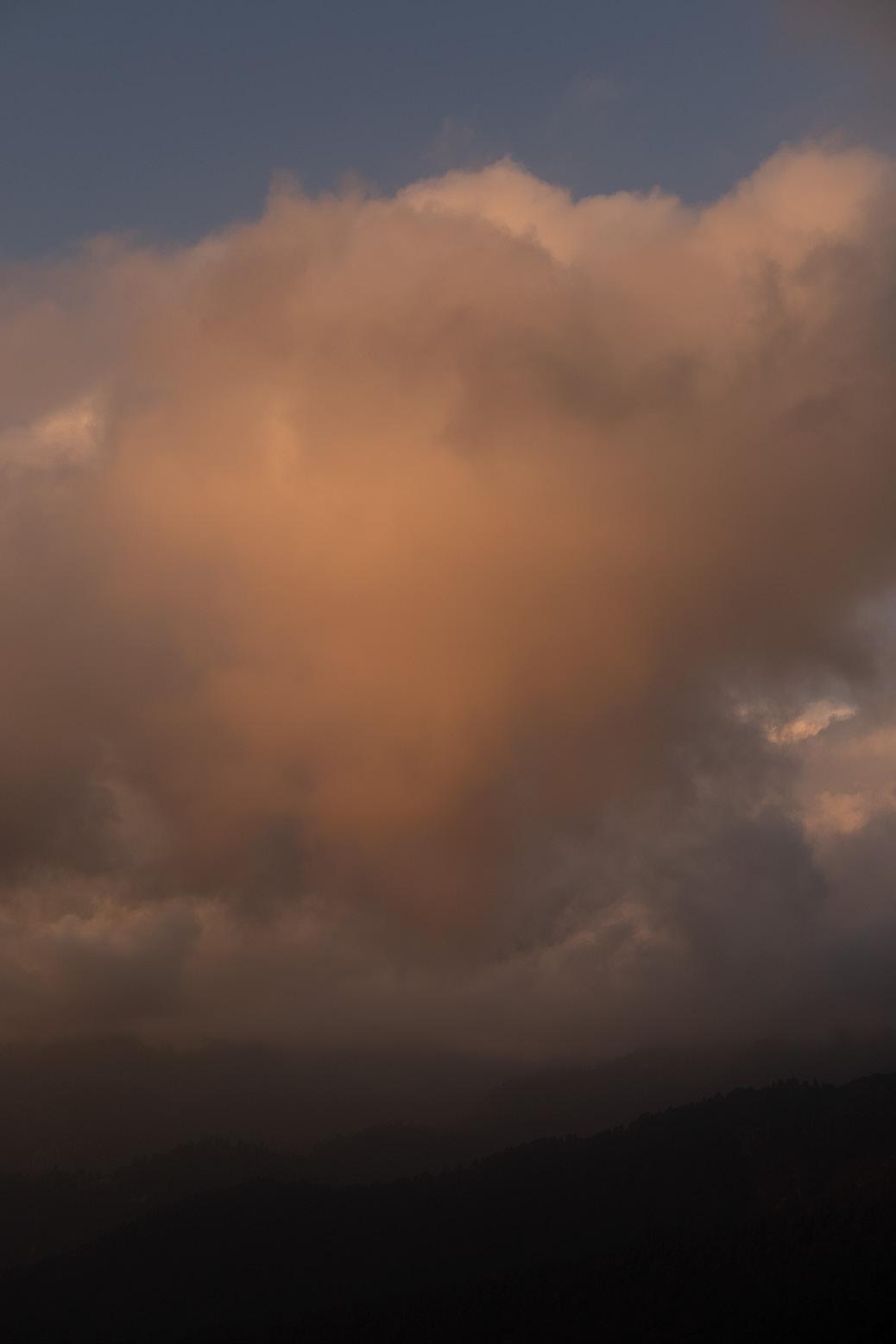





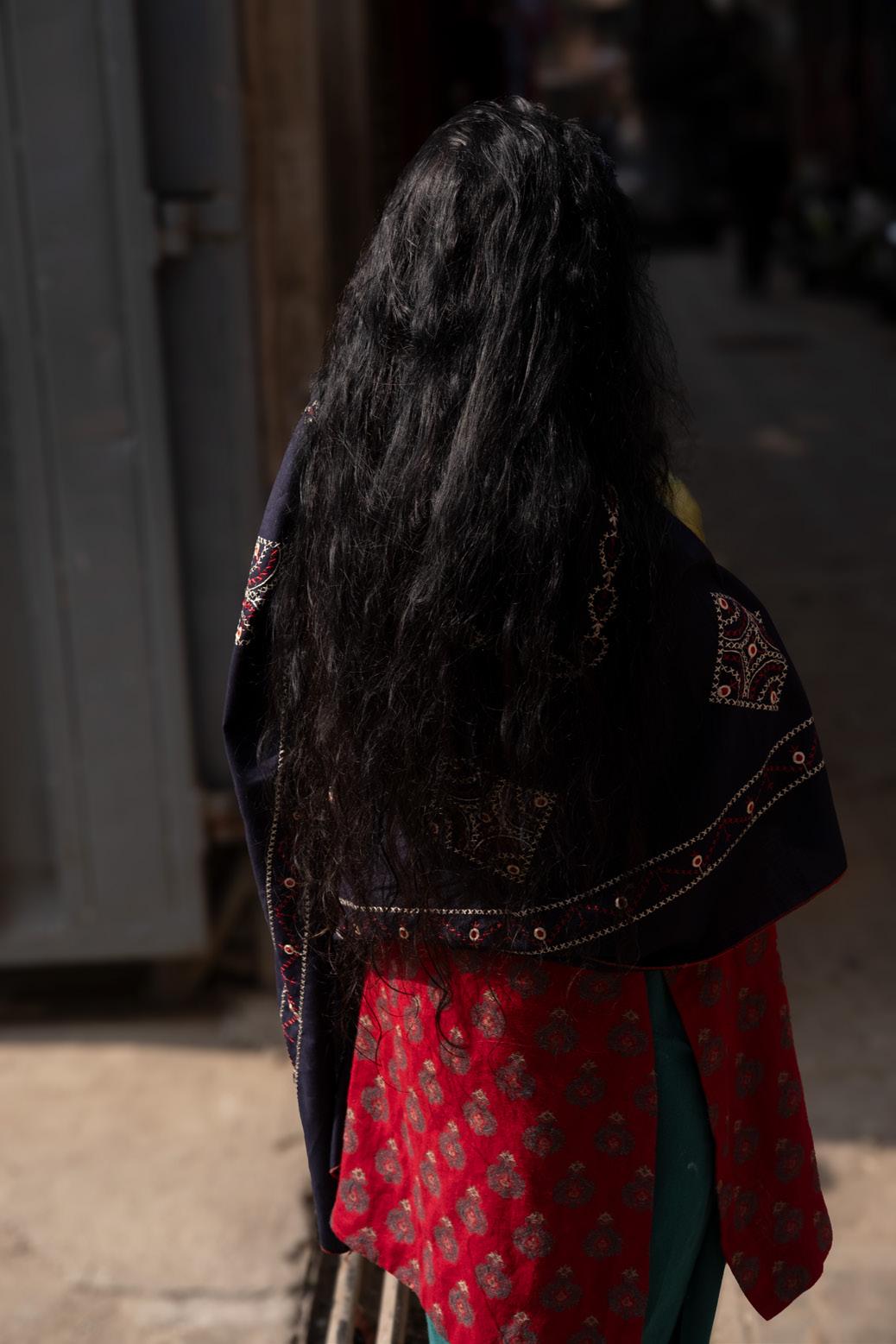


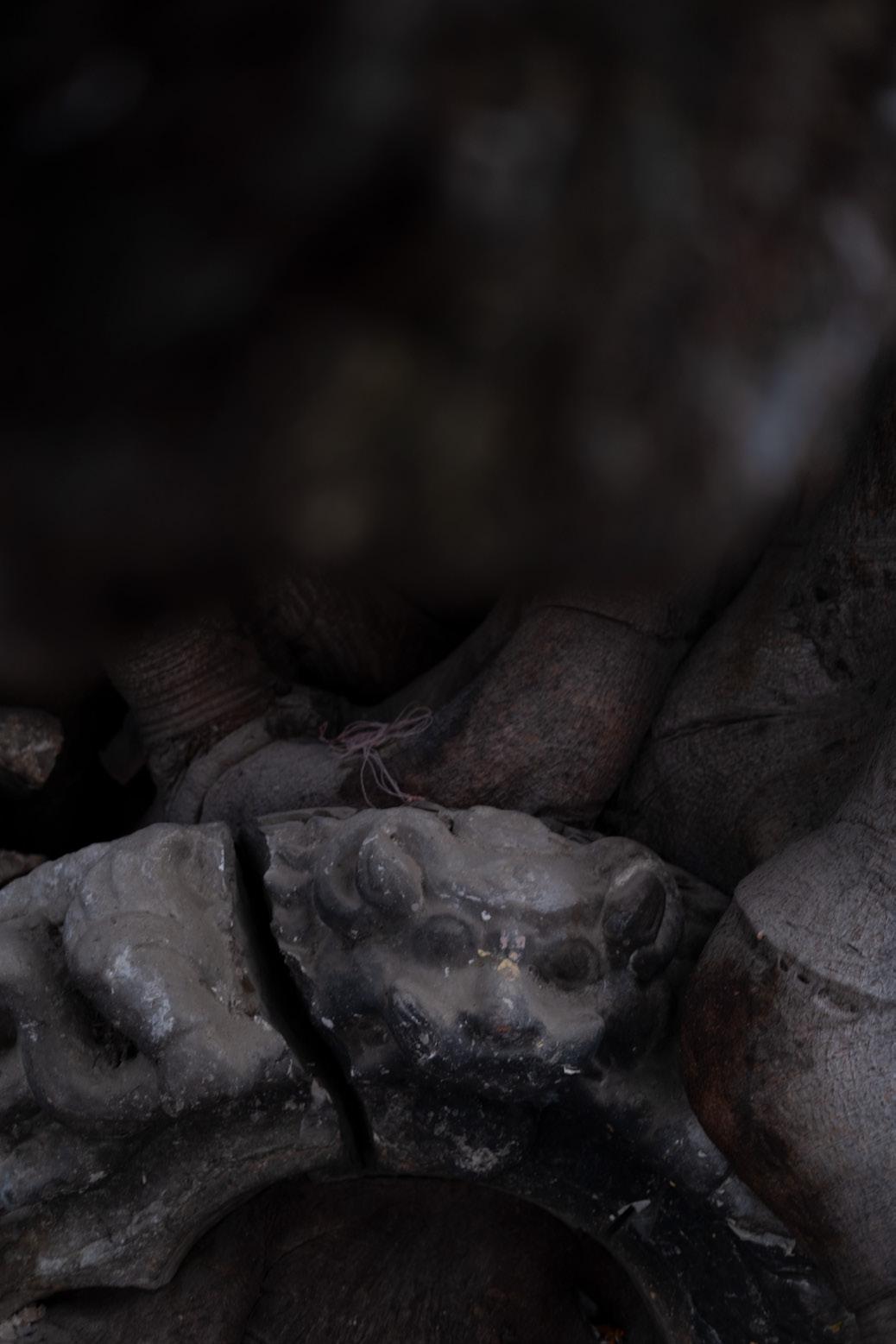



...a Nepalese hat, we walk, many houses, other houses, a multitude of smells and scents, men lying on the side of the road, children, many stray dogs, other children playing on the road, maybe my grandfather and I are eating tangerines, we walk again, we pass many houses, a big white building, Bal Mandir Naxal, the orphanage, I don’t see my grandfather anymore, I only remember his white robe.



*Āmā: mum
*Ba/bubā: dad
*Bha’i: brother
*Didi: sister
*Rāto: red
*Ghar: home
*Phūll: flower
*Pāni: water
*Mitho Cha: delicious
*Ramro Cha: beautiful or good
*Gandaki: a river in Nepal
*Ganesh and Kamal: my friends in the orphanage.
*Bagmati: the most sacred Nepalese river.
*Sunkoshi: a river in Nepal close to my house.
*Sūrya: sun
*Jhandā: flag, there was always a nepalese flag in the orphanage.
*Bal Mandir Naxal: Orphanage in Kathmandu
*Himal: possibly snow
*Kērā: banana
*Bhyāgutō: frog
*Tika: a sign generally placed in the forehead, decoration with different colours.
*Kālō: black
*Varnamālā: alphabet
*Cisō: cold
*Tātō: warm
*Tuctuc: it was a vehicle used during my Nepalese childhood. No longer used today.
* Kālī: the dark goddess
*Bāgh: tiger
*Suntalā: tangerine
*Rājā: monarch
*Nagar: city
*Putalï: butterfly
*Ākāśa: sky
Mero naam Bimal ho: my name is Bimal.
and 70 more words...



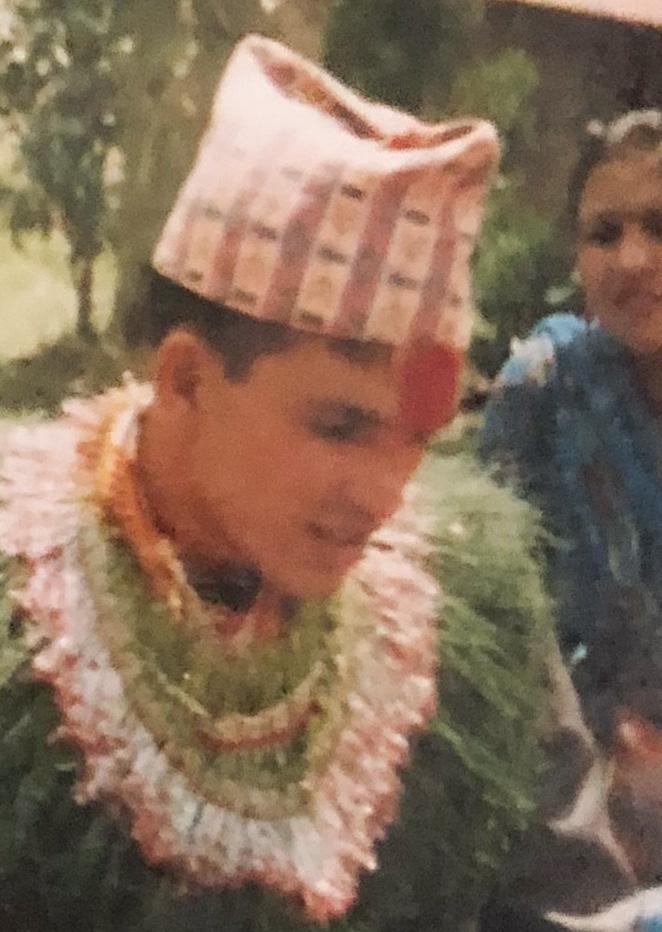


Bimal Fabbri
Kaliama 2022
A special thanks goes to my beloved parents Laura and Giorgio. You are for me love, roots, wings and life.
Thank you Maïa, without you and your support I don’t know how much courage I would have had to make this journey. Thanks to my Italian and Nepali family. I wish to thank: Ludwig and Binita. and everyone who took the time to look at my work and gave me their feedback!
1st edition as artist’s edition
© 2022 Bimal Fabbri for the photos, design, texts and poetry. The drawings are taken from a Nepalese book that I have since my childhood.
All rights reserved. No part of this book may be reproduced in any form or copied without the prior written consent of the artist.
bimalfabbri@gmail.com